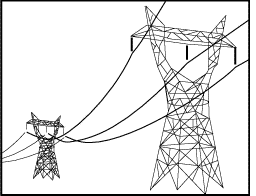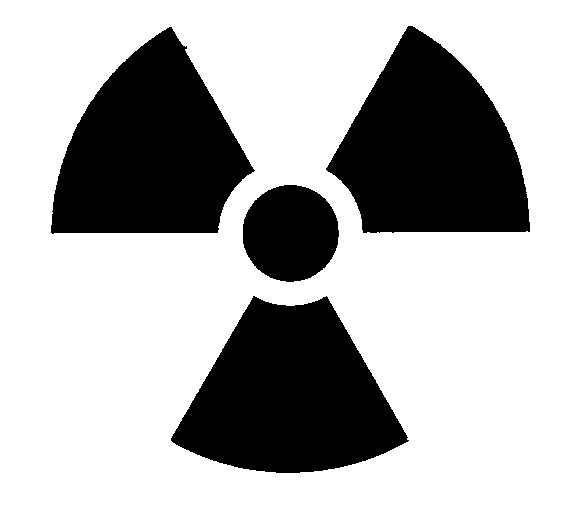From Nuclear Information Resource Service:
ACTION ALERT:
STOP DOE FROM CHANGING THE RULES IN THE MIDDLE OF THE GAME ON THE PROPOSED YUCCA MOUNTAIN DUMP!
GROUP SIGN ON LETTER TO ENERGY SECRETARY RICHARDSON. PLEASE SIGN ON BY THURSDAY, MARCH 19TH, AT 12 NOON.
Sign on to nirsnet@nirs.org
URGE THE DOE TO WITHDRAW ITS CURRENT ATTEMPT TO CHANGE THE RULES IN THE MIDDLE OF THE GAME TO FORCE THE OPENING OF THE HIGH-LEVEL NUCLEAR WASTE DUMP AT YUCCA MOUNTAIN, NEVADA
The DOE is attempting to remove any individual disqualifying conditions from its Site Suitability Guidelines for a High-Level Nuclear Waste Repository. DOE is trying to remove anything (including mandates in laws such as the Nuclear Waste Policy Act) that would stand in the way of moving ahead with trouble-plagued Yucca Mountain, Nevada. NIRS and over 200 other organizations petitioned DOE to disqualify Yucca Mountain in 1998, because DOEs own evidence shows that fast flow pathways for water exist at Yucca Mountain, a disqualifying condition. DOE denied the petition, and rather than address our contention is now trying to change the rules so that Yucca Mountain qualifies, no matter what. Please sign onto this group letter to say NO WAY, NO HOW to Secretary Richardson and the DOE.We need to turn up the heat on DOE for trying to pull this end run on sound science and public participation. For more information, contact me at NIRS (202) 328-0002.
---Kevin Kamps, Nuclear Waste Specialist, NIRS
March 10, 2000
Secretary Bill Richardson
U.S. Department of Energy
1000
Independence Avenue, S.W.
Washington, D.C. 20585
Dear Secretary Richardson,
We respectfully request that the Department of Energy withdraw the proposed rule change to 10 CFR Part 960 "General Guidelines for the Recommendation of Sites for Nuclear Waste Repositories; Final Siting Guidelines." We also respectfully request that you withdraw the proposed new rule, 10 CFR Part 963, specific to a Yucca Mountain repository. The proposed changes are fundamentally flawed, and are inherently unacceptable.
This action by the Department of Energy is not only a proposed change to the existing Site Recommendation Guidelines rule, but also an attempt to change the statute which mandates the guidelines --The Nuclear Waste Policy Act--in the guise of a proposed rule change. This is not only inappropriate and illegal, but an example of the same sort of foul play that has caused a total loss of public faith and confidence in the U.S. Department of Energy's nuclear programs and policies.
Most recently, DOE announced these proposed Guidelines changes right on top of the Draft Environmental Impact Statement comment period--and during the holiday season to boot--not only creating a great deal of confusion for the public, but also seriously undermining their ability to participate. To make matters worse, the address published in the Federal Register Notice to which public comments are to be sent for the proposed Guidelines changes was incorrect--concerned citizens who have submitted comments are receiving them back in the mail marked undeliverable, forwarding address expired. We may never know many public comments will be "lost in the mail" due to this error. If you are concerned with building public confidence and participation in the process, DOE is failing miserably.
These blows to public confidence and meaningful public involvement are bad enough. Changing the rules in the middle of the game is even worse. At issue is whether or not there are bounding values for key parameters which determine the suitability of a particular site for the isolation of nuclear waste. Further, there is also the question as to whether these bounding values are used in decision making. The Nuclear Waste Policy Act specifies that such parameters be defined to qualify or disqualify any site from development as a nuclear waste repository.
In fact, according to current Guidelines, Yucca Mountain should already be disqualified. Data presented in the Viability Assessment of a Repository at Yucca Mountain supports a high-level finding that the site should be disqualified, based on the fast travel time of water in the mountain. This parameter, perhaps more than any other, spells failure at Yucca Mountain for the goal of nuclear waste isolation over time.
Indeed, DOE's own performance assessments show this. If the criteria for determining what is acceptable and what is not acceptable is removed, then this data simply washes away into the massive uncertainty associated with a total system performance assessment.
That the Department is now seeking to quietly get rid of the criteria that would disqualify the site--and indeed, remove ANY basis for site disqualification--is a blatant subversion of the Nuclear Waste Policy Act, which at least nominally provides for a scientific basis for policy decisions. In fact, this proposal violates the scientific method itself.
If a subject cannot meet a pre-defined criteria, the scientific method requires that the subject be rejected (i.e. the site be disqualified), not that the rules be changed in the middle of the game. Specifically, the Department has misrepresented Section 113 of the Nuclear Waste Policy Act. The Department argues that a total system performance assessment will suffice to meet the requirements of the law on how a proposed repository site, already subject to site characterization, is to be recommended to the President as "suitable" for repository development. This is not the case. The law states:
Section 113 [Site Characterization](1) (A)the plan shall include (iv) criteria to be used to determine the suitability of such candidate site for the location of a repository, developed pursuant to section 112(a) [42 USC 10132(a)]
Section 112 (a) Such guidelines shall specify factors that qualify or disqualify any site from development as a repository, including factors pertaining to the location of valuable natural resources, hydrology, geophysics, seismic activity, and atomic energy defense activities, proximity to water supplies, proximity to populations, effects upon the rights of users of water (emphasis added).
In the guise of the proposed rule change, the Department is attempting to rewrite the law. Use of a projection of system performance is no doubt valuable for determining whether the site can meet any parameter, but it is not and cannot be a substitute for specified, defined parameters which "qualify or disqualify any site." The Department has no choice about this. The decision on ANY repository site, after site characterization has commenced, is to be based on its ability to meet guidelines that are promulgated under Section 112 of the Act. These may be changed, but the requirement of specified factors which "qualify or disqualify" may not. It is not acceptable to try and explain away any remaining opportunity to reject Yucca Mountain as the repository site simply because of political and economic forces that seek to render this site as a "done deal" even in the face of sound, compelling scientific evidence that the site will in fact leak, and do so soon after the first container fails.
In 1998 NIRS and 218 other organizations petitioned Secretary Richardson calling for the immediate disqualification of Yucca Mountain under the current Site Recommendation Guidelines, based on DOE's own data showing the presence of bomb test fallout at repository depth in Yucca Mountain.
We are outraged that the Department is now seeking to lay aside those guidelines rather than disqualify Yucca Mountain and restore the site. Any attempt to site a permanent repository must adhere to strict standards of scientific integrity. As commented upon in the January 14, 2000 issue of Science Magazine, newly published findings that plutonium is much more soluble in water than previously thought "...have great consequences for the underground disposal of plutonium wastes..." Such new discoveries, coupled with the fast flow of water at Yucca Mountain, will undermine DOE's public credibility if the proposed changes to the Site Suitability Guidelines are not withdrawn.
We urge you to withdraw this proposed rule.
Sincerely,
Michael Mariotte
Executive Director, Nuclear Information &
Resource Service, Washington, D.C.
| Critical Mass
Home Email Critical Mass |
 UTILITY DEREGULATION |
 NUCLEAR POWER & REACTOR SAFETY |
 RENEWABLE ENERGY |
 RADIOACTIVE WASTE POLICY |

|